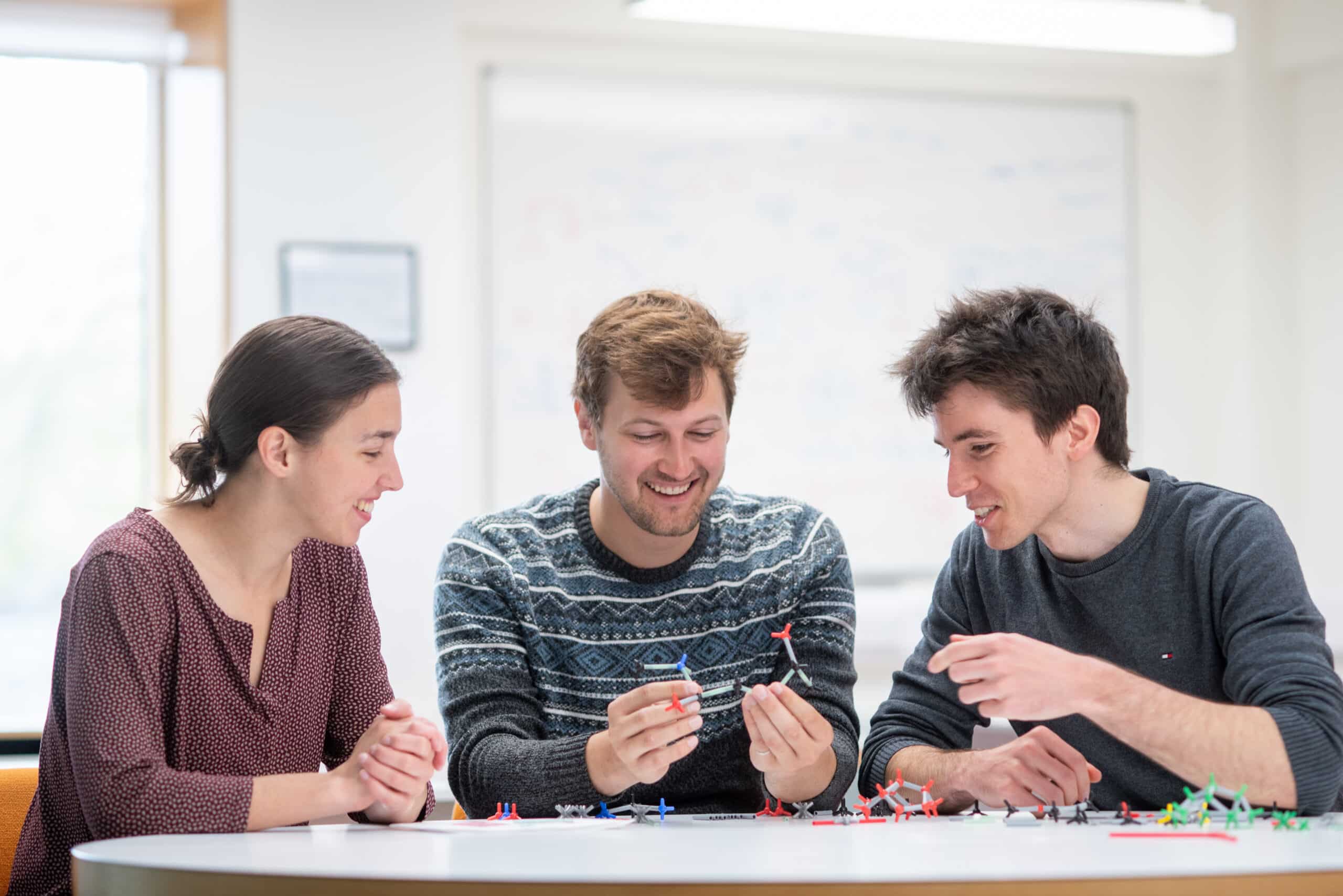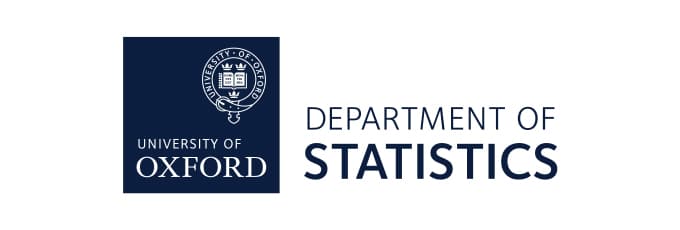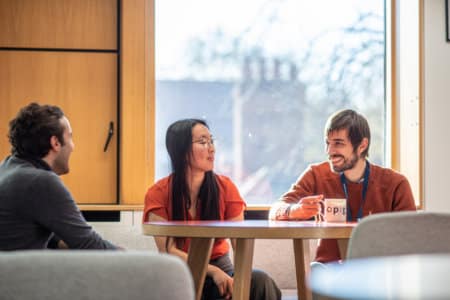While pursuing his bachelor’s degree in mathematics, Alexander Goyal realised his passion for the applied side of the discipline, and in particular, statistics. “I particularly enjoyed being able to combine strong theoretical foundations with fascinating real-life applications,” the Swiss-born student says.
“After completing my bachelor’s degree, I was looking to advance my knowledge in statistics by completing a master’s degree in a leading university that would also allow me to experience a different culture than that of Switzerland,” he says. “These circumstances led me to apply for the MSc in Statistical Science at the University of Oxford.”
Ranked the best university in the world by Times Higher Education for the eighth consecutive year, Oxford is a world-leading centre of learning, teaching and research and the oldest university in the English-speaking world. The university has a Gold rating in the Teaching Excellence Framework, the highest a university can achieve, overall as well as for student experience and outcomes.
Its Department of Statistics is revered for its ground-breaking research in diverse areas including computational statistics and statistical methodology, probability, bioinformatics, mathematical genetics and epidemiology. In the 2021 Research Excellence Framework (REF), 78% of its submission was judged to be 4* (the highest score available, for research quality that is world-leading in terms of originality, significance, and rigour). It also holds an Athena Swan Silver Award, highlighting its commitment to progress, prioritising gender and intersectional equality in its community.

MSc in Statistical Science students gain a rigorous theoretical foundation as well as practical experience solving real-world statistical problems, with a strong focus towards modern, scalable computational methods and machine learning. Source: University of Oxford
Programmes here focus on training the next generation through a rigorous education in modern statistics. The MSc in Statistical Science provides a broad spectrum of courses spanning statistical theory, applied and computational statistics and machine learning – blending fundamental knowledge in statistical science and experience with state-of-the-art methodology. The course is taught through a combination of lectures, problem classes and practical sessions.
“In the practical sessions, the students get hands-on experience applying the methods they learn to realistic problems working with real datasets,” says course director George Deligiannidis, MSc Course Director. “Additionally, the students on the MSc have to complete an in-depth dissertation, forming a substantial component of the assessment, further testing their independence and their ability to formulate and answer questions.”
A variety of teaching methods are used. For example, a group practical in machine learning may also take the form of a Kaggle challenge. “This allows the students to develop their teamwork and leadership skills, while at the same time they are faced with a challenging question involving realistic datasets,” says Deligiannidis. “The students have to make use of the knowledge they have acquired in the MSc to deal with a practical question. This often requires innovative, out-of-the-box thinking.”
While the programme trains students to solve real-world statistical problems, it also has an emphasis on theory. “Our insistence on the theoretical foundations of statistics is because we want our students to understand in depth the inner workings of modern algorithms, rather than becoming end users,” says Christl Donnelly, Head of Department. “This means that our students are familiar with cutting-edge methodology and are ready to hit the ground running in the job market. Their deeper understanding equips them with the skills and experience to learn and adapt to novel methods and shifts in the industry landscape.”
Goyal believes this balanced approach has prepared him well for his future career. “I feel that the concept of Case Studies, which is a weekly course where we review current literature in statistics, has allowed me to develop a new point of view on how to approach a career in research in the field of statistics,” he says. “The master’s dissertation has also allowed me to have a hands-on experience on what it is like to actually conduct academic research, which I was not very familiar with beforehand.”
For Jessica Rapson, 26, from Canada, the MSc aligns well with her career goals. After completing her BSc in Behavioural Science, Mathematics, and Statistics and Master of Public Policy degrees from the University of Toronto, she had worked as a data scientist/statistician for the Government of Canada. This was where she noticed the large number of potential applications for machine learning/statistical science to improve policymaking. “I wanted to improve my understanding of these methods to better implement them for governments to improve policymaking,” she says.
With the MSc, Rapson is now several steps closer to realising her aspirations. The dissertation component, in particular, “substantially improved” her research skills and ability to understand technical concepts on her own. “My goal is to use my dual background in policy and statistical science/machine learning to make the world a better place,” she says. “I have already started to achieve my career goals. I’ve found several high-impact projects that involve applying machine learning methods to policy issues which I am now involved in.”
Inspiring, supportive professors
Being at Oxford means that students can learn from and engage with world-leading experts in modern statistical science. Optional courses, for instance, usually reflect the current research interests of faculty members. Deligiannidis himself regularly publishes in probability and statistics journals as well as machine learning conferences and imparts this knowledge in his teaching. As a result, students are exposed to a breadth of different concepts and have the chance to delve into areas of particular interest to them – all while building strong relationships in the department’s community of researchers and academics.
The department’s commitment to the wellbeing and success of all its students also includes assigning a mentor to every student, who supports them in academic and personal matters. This gives students an avenue to raise any concerns about their progress early, an approach that has worked successfully in the past. Deligiannidis recalls how a student with a successful background in a different field was struggling to follow more theoretical concepts. He managed to overcome this challenge with the help of his mentor.
“The student raised concerns early on through their supervisor,” he shares. “As a result, the student was offered additional support on every level: additional sessions with some lecturers, study groups with fellow students, and tutorials offered by doctoral students. The student was also directed to the appropriate resources to help with the stress that unavoidably ensued. The outcome was that the student completed the degree successfully. Statistics both benefits from and provides benefits to a wide range of fields, and so ensuring that the right support is in place to allow interdisciplinary study and research to take place is a particular focus.”

More than three-quarters (78%) of the department’s submission was deemed world-leading in terms of originality, significance, and rigour during the most recent Research Excellence Framework (REF) assessment. Source: University of Oxford
Deligiannidis has supervised several MSc students who have gone on to successful careers in finance, tech companies, the pharmaceutical industry and so on. A large number of students also go on to doctoral degrees in top universities in the UK, including some at Oxford, and abroad. As they move on to the next chapter of their lives, they carry with them a lifetime of memories on and beyond campus.
As Oxford is an inspiring city, students can pursue many interests and join interesting and engaging activities all year long. “I found that I was very easily able to balance my studies with both my personal and professional commitments,” says Goyal. “All professors are very respectful with regard to extra-curricular activities, and I have never had a problem catching up on my studies if I needed to.”
Following his MSc, Goyal aims to earn a PhD in statistics. The university’s careers team played a large role in helping him chart his next path, as well as speaking to multiple professors in the statistics department. Goyal believes his Oxford experience will help him reach this goal.
“What sets Oxford graduates apart most is the combination of a very good understanding of statistical theory with an innate ability to explain difficult mathematical concepts to less experienced people,” says Goyal. “Every student I know can incorporate very hard theoretical concepts during a lecture and almost immediately explain these concepts in a very simple way.
“The emphasis that the MSc course places on practical work with R and problems involving real data will set me apart from other candidates in the job market.”
Follow the Oxford Department of Statistics on X, YouTube, LinkedIn and Instagram












